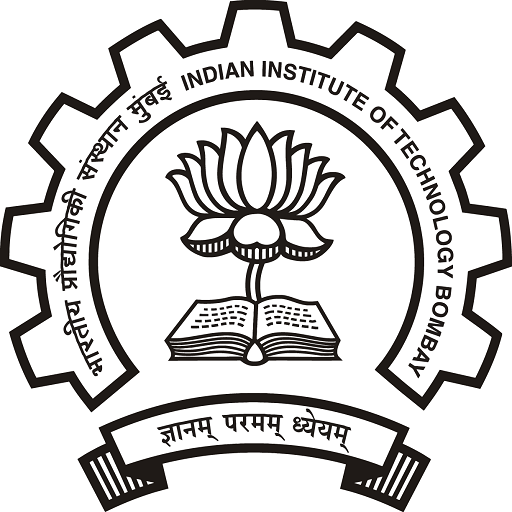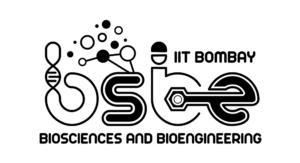PhD Program
The Department of Biosciences and Bioengineering comprises of Biosciences (BS) and Biomedical Engineering (BME) as core academic groups. Eligibility criterion and research areas for the two groups are mentioned below. Under the item No. 10(b) of Application Form, the candidate should enter the groups (BS, BME) they wish to join in the order of priority.
ELIGIBILITY FOR ADMISSION
(i) M.Tech./M. E. or equivalent degree in Biotechnology, Biomedical Engineering, Chemical Engineering, Computer Science / Engineering, Electrical Engineering, Electronics / Telecommunications Engineering, Instrumentation Engineering, Mechanical Engineering, Engineering Physics, Optics / Optoelectronics / Photonics, Robotics, Robotics Engineering, Automation and Robotics, Mechatronics, Data Science and Artificial Intelligence, Data Science and Engineering, Artificial Intelligence, Engineering Sciences.
(ii) M.Pharm. OR MBBS with MD/MS, MVSc, MDS, MPTh, MOTh, MS/MD Health sciences AYUSH.
(iii) B.Tech./B.E. or equivalent degree in Biotechnology, Biomedical Engineering, Chemical Engineering, Computer Science / Engineering, Electrical Engineering, Electronics / Telecommunications Engineering, Instrumentation Engineering, Mechanical Engineering, Engineering Physics, Optics / Optoelectronics / Photonics, Robotics, Robotics Engineering, Automation and Robotics, Mechatronics, Data Science and Artificial Intelligence, Data Science and Engineering, Artificial Intelligence, Engineering Sciences.
(iv) M.Sc. or 5-year Integrated B.S.-M.S. program or equivalent degree in Life Sciences, Biochemistry, Biophysics, Biotechnology, Ceramics, Chemistry, Electronics, Ergonomics, Material Science, Mathematics, Molecular Biology, Physics, Bioinformatics, Data Science, Physiology, Cognitive Science, Neuroscience, Photonics / Optics / Optoelectronics
(v) Health Sciences (such as MBBS (Medicine) / BDS (Dental), B.Pharm/B.V.Sc., B.P.Th., B.O.Th., B.ASLP, Pharma D (duration 4 years or more). Candidates with these backgrounds and degrees, should have qualified one of the following: All India level postgraduate entrance examinations for corresponding disciplines such as INI_CET/NEETPG/NEET MDS/JIPMER/PGI Chandigarh/AFMC-Pune/DNB Part I/AIIPMR for MBBS/ BDS, GPAT/ All India level selection examination for B.Pharm., All India level postgraduate entrance examination such as AIIPMR for M.V.Sc., M.P.Th., M.O.Th. and M.ASLP, GATE examination for all such health science background where applicable. Eligibility/rank certificates for all such All-India level entrance examinations are required. The candidate should have qualified in the entrance exam (as per the qualification criterion of the respective exam for that exam year and category), and the score obtained should be valid (as per the duration of validity for the respective exam) at the time of admission to the Ph.D. program.
Candidates with qualifying degrees in [iii and iv] must fulfill one of the following: a valid GATE score (for TA/TAP/RA/RAP), a valid CSIR/UGC/DBT JRF, or a valid ICMR JRF not linked to ICMR project or any other fellowship that will provide scholarship for five years. For candidates with qualifying degrees as in (i) to (v), and applying under CT, EX, IS, PS, or SW category, experience [as specified in A.5 and A.6 in PhD brochure] is mandatory.
Biosciences (BS)
RESEARCH AREAS
(A) Biophysics and Computational Biology: Protein crystallography, NMR-based structural biology, and single particle cryo-EM, cryo-ET; Bioinformatics and computational biology; Physics of biological systems and computational Modeling of biomolecules; Dynamics of cytoskeletal filaments and chromatin remodeling; Physical properties of the extracellular matrix; Protein folding/misfolding, aggregation and neurodegeneration; Time-resolved techniques; Cellular Biophysics, cellular biophysics in microfluidic systems.
(B) Biochemistry: Molecular enzymology; Microbial metabolism and regulation; Aromatic hydrocarbon metabolism and genetic engineering; Molecular mechanisms of DNA replication, repair, and packaging in double-stranded DNA viruses
(C) Microbial Biology: Biology of model and pathogenic fungi, viral assemblies, bacterial pathogenesis, host-pathogen interactions, molecular parasitology.
(D) Cell Biology: Microtubule dynamics; Bacterial cell division; Chromosomal and extrachromosomal segregation in fungi; Neurobiology; Motor proteins
(E) Immunology: Tumor Immunology; Cancer biomarker.
(F) Genetics and Molecular Biology: Functional Genomics; Epigenetic Regulation; Fungal Molecular Genetics.
(G) Proteomics, System Biology, and Biomarkers of infectious diseases
(H) Developmental Biology: Early vertebrate development using zebrafish as a model system, cell movements during gastrulation, Motor neuron disease biology.
(I) Breast cancer, Cancer Biomarkers, Oncogenic signalling, disease modelling.
(J) Vesicular trafficking, G-protein coupled receptor (GPCR) signalling, cilia biology, and ciliopathies
BIOMEDICAL ENGINEERING (BME)
RESEARCH AREAS
(A) Sensors and Devices: Bioinstrumentation for diagnostics and therapeutics; Early detection of carcinoma and tropical diseases; bio MEMS devices; Fluorescent Biosensors; Nanoengineered Sensors; Layer by Layer Self Assembly; Microfluidics for biomedical applications; Robotics for Healthcare applications and devices; IoT for healthcare applications and devices.
(B) Application of AI/ML in health care applications and devices.
(C) Biomaterials, Drug delivery, and tissue engineering, Nanobiotechnology, Design of scaffolds for tissue engineering, Controlled Release technologies, Neuroprosthetic devices, including aids for the people with disabilities, Signal processing, Telemedicine, and knowledge-based systems. Microfabrication for immunotherapy
(D) Computational physiology, Cardiac electrophysiology, muscle mechanics, Computational Neurophysiology, Respiratory system modelling
(E) Movement Neuroscience, Rehabilitation technology; Neural signal processing, Neuroimaging, Neuromodulation, Neurofeedback. Human motor control, motor learning, biomechanics of human movement, non-invasive brain stimulation, assistive devices, geriatric (aging) and neurological rehabilitation, Balance, gait and falls research, Cognitive control of movement.
(F) Biomedical Optics: Cerebral blood flow imaging in humans, Laser and diffuse speckle imaging, Microscopy, small animal imaging, functional near-infrared spectroscopy in humans and animals, Biomedical instrumentation (system development), imaging and other computational aspects, towards commercialization of imaging systems.
(G) Computational Biology and Bioinformatics: Bioinformatics and computational biology approach to study protein-protein, protein-drug interactions, etc., in cancer, and neurodegenerative and endocrine diseases.
(H) Biomedical Informatics and Physiology: Healthcare process modeling and analysis, Temporal-focused phenotypes, Mechanistic physiologic models for clinical data, Healthcare data-driven mathematical models, phenotyping patient health evolution in intensive care setting, nonlinear time-series analysis, spectral analysis.
(I) Optical and Ultrasound Imaging and Instrumentation: Low-cost, portable Optoacoustic tomography, Optoacoustic microscopy, Ultrasound imaging, Multi-modal biomedical device design, Pre-clinical small-animal imaging, Wearable/smartphone-based point-ofcare optoacoustic devices, Image reconstruction, Deep learning/Machine learning in optoacoustic imaging, clinical application areas in breast cancer screening, rheumatoid arthritis, psoriasis, diabetes.
Click here for information brochure: PhD Brochure 2025-26
FACULTY ADVISORS:
Prof. Sushil Kumar / Prof. Swapnil Shinde / Prof. Sandip Kaledhonkar

